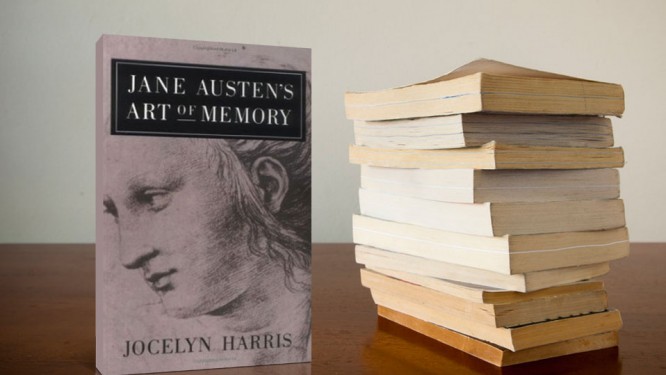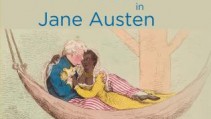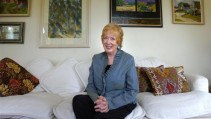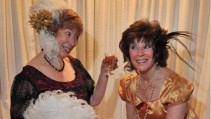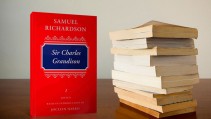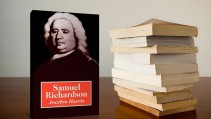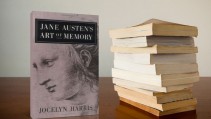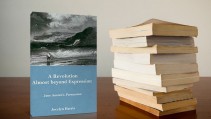Jane Austen’s Art of Memory. Cambridge: Cambridge University Press.
Repr. 2003 and on demand.
Order
Buy Online: Jane Austen Books.
Buy Online: Cambridge University Press.
Reviews
Jane Austen’s Art of Memory, one of the best of the numerous books on Austen to appear in the last two decades.
A genuinely original work, and one of considerable interest for what it has to say about a major writer. What is offers is a rather rare thing: a ‘new’ Jane Austen, who was not only open to ‘influences’ from her desultory reading but had read certain authors intensely and creatively, almost as Keats read Shakespeare or Eliot read Dante. The book is no less than a recreation of substantial areas of Jane Austen’s mental and imaginative life.
points convincingly to a better informed and more intellectually cosmopolitan Austen than previous generations had supposed. … Again and again Harris’s subtle interpretations show Austen engaged in the kind of tough, transformational imitation of such ‘greats’ as Chaucer, Shakespeare, Milton, Locke, Pope, Richardson, Fielding and Coleridge that has long been considered a mark of importance in male writers.
Jocelyn Harris, the distinguished editor and scholar of Richardson … Scholars encountering these arguments in earlier appearances praised Harris for her fine ability to detect in Austen’s novels verbal echoes of earlier works and to analyse complex transformations of inherited characters, themes and episodes. That ability reappears in the present book. … What distinguishes her reading is, again, her keen eye for repetitions of phrase, episode, plot, character, and theme. … tone … of sustained and enthusiastic appreciation. … the skill which it charts Austen’s magical transformations of traditional materials. … this distinguished study … Harris’s book is an impressive achievement. … No one, after reading Harris’s book, is likely to have much patience with the old, condescending characterizations of Jane Austen’s intellectual limitations.
Jocelyn Harris is a witty, sympathetic, and very enthusiastic commentator: and Jane Austen’s re-writing, or derivation, or complication or — finally — ‘layering’, is seen as a marvellous feat of creative memory … Jocelyn Harris’s sensitivity and love for her subject.
Jocelyn Harris’s Jane Austen’s Art of Memory breaks new ground by applying a familiar critical method to the word of a novelist not usually considered to be so extensively and consciously indebted to literary and philosophical influences as appears here. … innovative case … plausible arguments … ingenuity … very readable
lively persuasion … deft confidence … convincing … Jane Austen’s Art of Memory shows clearly that the novelist read hugely, remembered what she read, sometimes word for word, and that she used her material in her own works, possibly quite consciously, reshaping her models in critical and experimental ways. There is valuable information here, provocative argument and fresh insight into Jane Austen’s compositional procedures
More recent critics have charted the broad range of influences on Austen’s art. Detailed and sensitive attention … See among several valuable studies, Jocelyn Harris, Jane Austen’s Art of Memory
Jocelyn Harris is characteristically astute in observing that Jane Austen educated herself on the ‘English Classics’.
Jocelyn Harris, who in a brilliant analysis of Emma finds in it a subtle reworking of elements from A Midsummer Night’s Dream.
It has become clear that Austen had a much more sophisticated understanding of contemporary political debate than her first admirers recognized. In this quiet and scholarly study of the novels, Jocelyn Harris wants to extend the terms of our revision. … The strength of this book lies in the range and precision of the literary parallels it perceives. Harris has the advantage of knowing a great deal about some of the authors and books that meant most to Jane Austen. Chief among these authors is Samuel Richardson, and chief among the books is Sir Charles Grandison. Harris is a notable Richardson scholar, and her editing of Sir Charles Grandison has given her a grasp of that long and intricate book that few can match … Harris’s sympathetic engagement with Jane Austen has made for an impressive study, at once informative and unexpectedly haunting.

